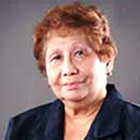GIVEN this new normal ushered in by Covid-19, online teaching and learning is here to stay. While this asynchronous mode has brought advantages, internet unavailability, inaccessibility and non-functionality in many areas of our country is a stark impediment to achieving the goals of Agenda 2030 — with its theme of inclusiveness — "No child left behind." On the positive side, many of our young are digital natives, hence are adept in sharing information across networks.
(OCL) — Online collaborative learning. Collaborative on-line learning (CoL) composes small groups of two or three learners learning together using the information communication technologies of the Knowledge Age, particularly the internet. They plan together common learning goals, mutually searching for "understanding, solutions, or meanings, or creating a product." Wherever the internet is accessible, available and functional, CoL is possible. CoL activities are a great way to actively engage students in their own learning; help them develop higher order thinking skills, give them freedom to work at their own pace and control over their learning achievements (Allen & Seaman, 2013). This boosts students' confidence and self-esteem as well. CoL can help "foster community and counter potential feelings of disconnection or isolation; at the same time help students take shared ownership and responsibility for their learning." (https://ctl.columbia.edu ›... › Teaching in All Modalities)
Continue reading with one of these options:
Ad-free access
P 80 per month
(billed annually at P 960)
- Unlimited ad-free access to website articles
- Limited offer: Subscribe today and get digital edition access for free (accessible with up to 3 devices)


